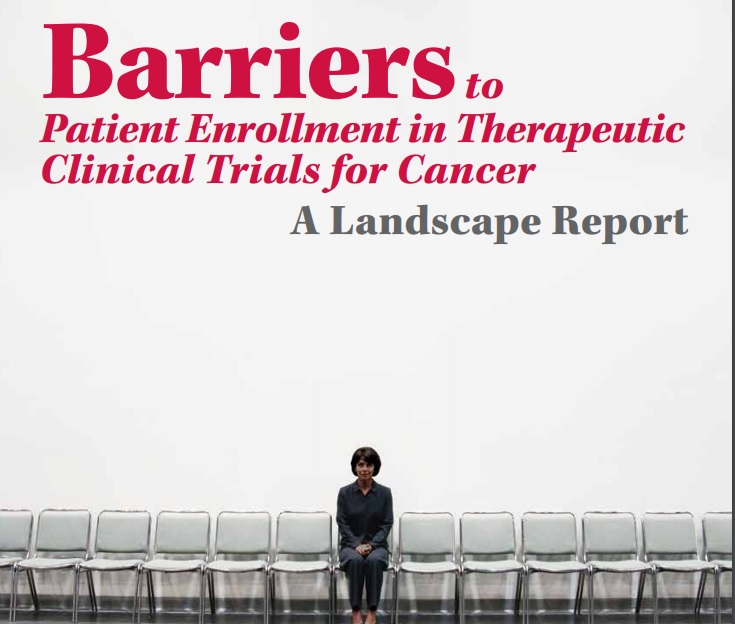
Cancer CANdor Blog
ACS CAN President Lisa Lacasse shares her views on the impact of advocacy on the cancer fight.
Promoting Progress: Eliminating Barriers to Clinical Trial Enrollment
Clinical trials are an essential part of advancing new cancer treatments and reducing suffering and death from the disease. However, a significant percentage of cancer clinical trials never get off the ground because not enough patients enroll.
We at ACS CAN are eager to better understand the barriers to clinical trial enrollment. So our policy experts spent the last year delving deep into patient challenges for a new report, Barriers to Patient Enrollment in Therapeutic Clinical Trials for Cancer. The report was released this month at our annual national health policy forum.

The report found that a number of barriers contribute to the concerning statistics that only about one in four (27%) patients has access to clinical trials where they are being treated; yet, if asked to enroll in an available trial, more than half of eligible patients typically agree to do so.
Of the patients who actively decline to participate, most said they were afraid of side effects, losing control of their treatment or that they would encounter logistical or cost issues with enrolling.
Clearly the cancer community needs to do more to expand the reach of available trials and make sure trials are designed so that those who want to participate can.
Hoping to improve patient enrollment, ACS CAN along with 14 other organizations from all sectors of the cancer research community developed a set of consensus recommendations. Sample suggestions include making the discussion of specific trial options a more regular part of the doctor-patient treatment decision, increasing funding for trial-support personnel to help patients understand, enroll and manage their trial, and helping patients with added costs that occasionally result from trial participation.
Both the report and the recommendations have been well received and we hope to continue this conversation with the ultimate goal of making sure that patients interested in clinical trials don’t have anything standing in the way of their taking part. The future of cancer research depends on robust participation from patients.